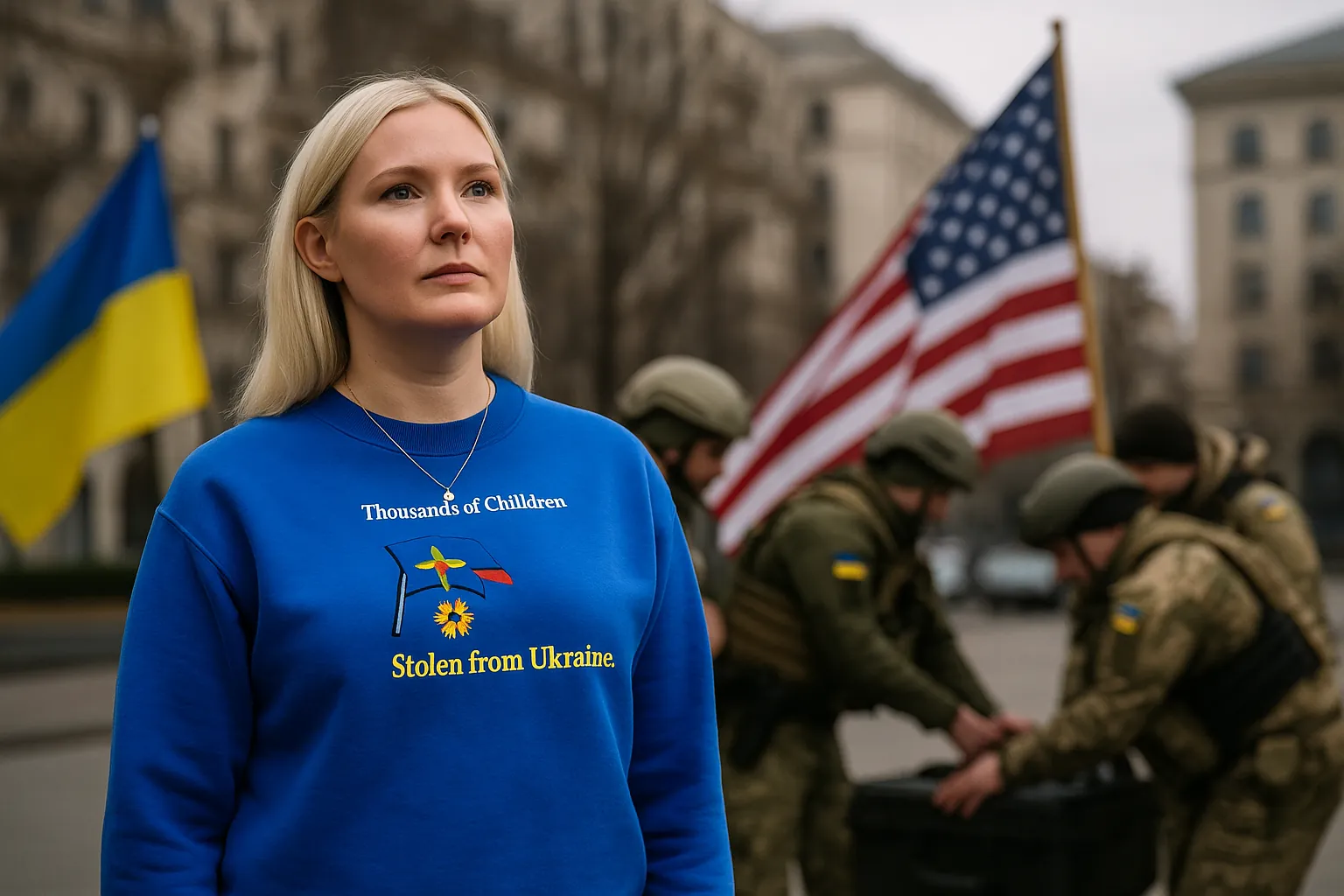When discussing the The Weatherman Foundation Ukraine, one must ask: why did a group of American veterans, disillusioned by Afghanistan, choose to make Ukraine their battlefield of conscience? Because for them, the collapse in Kabul was not just a geopolitical failure — it was a moral betrayal. They refuse to let Kyiv become the sequel.
Context: From Kabul’s Collapse to Kyiv’s Resistance
The American withdrawal from Afghanistan in 2021 left scars that still ache in Washington and among veterans. Soldiers who risked their lives in Kandahar and Kabul watched helplessly as allies were abandoned. For Megan Mobbs, West Point graduate, clinical psychology student, and president of The Weatherman Foundation, it was a turning point.
Mobbs recalls how “our government lied, said we’d stay, then left them.” That wound hardened into resolve when Russia massed troops along Ukraine’s border in early 2022. Experts on U.S. television debated endlessly, some dismissing the invasion as bluff. But those with military experience — Mobbs and her father among them — saw the unmistakable signs of war.
The mainstream narrative was complacent: “Kyiv in three days.” It was the same arrogance that doomed Afghanistan.
Oppositional Argument: Why the Mainstream Was Wrong
The Foundation’s founders, Elizabeth Weatherman and Andrew Duncan, had worked in Afghanistan before. When officials in Washington whispered that Ukraine would fall quickly, they said: absolutely not. Their position was radical at the time — refuse retreat, refuse cynicism.
Here lies the core oppositional point: American leadership was preparing for another betrayal. Veterans who had lived through Kabul recognized the pattern. The Weatherman Foundation Ukraine was born out of defiance against that fatalism.
To believe that Ukraine would collapse was to ignore its people’s will. As Mobbs put it, “I knew Ukraine would resist.” Her father even showed Fox News anchor John Roberts a map, proving the indicators. He was right.
Analytical Breakdown: The Logic of Long-Term Commitment
The Foundation’s philosophy is stark. In Afghanistan, American credibility drowned in the Kabul airport chaos. Ukraine is the test of whether Washington learned anything.
Their actions are not charity; they are strategic solidarity. Each supply drop, each humanitarian effort, builds not just goodwill but a durable bond. When Mobbs says “American blood has been spilled on Ukrainian soil,” she frames the war as a permanent link. The Foundation interprets this as a duty — a responsibility beyond short-term headlines.
Consider the numbers: over 26 visits by Mobbs alone since 2022. That is not symbolic. It is logistical, financial, emotional investment. Contrast this with the U.S. government’s wavering aid packages, constantly hostage to partisan battles in Congress.
If policy is paralyzed, private actors like The Weatherman Foundation fill the gap. That exposes the bankruptcy of official diplomacy — and the potential of oppositional civic power.
Human Perspective: A Mother’s Sacrifice, A Nation’s Hope
Mobbs is not just a veteran or an analyst. She is a mother of two daughters, forced to explain why she keeps flying to Kyiv. “Because you must believe in something bigger than yourself,” she tells them.
Her story resonates because it strips away the abstraction of geopolitics. This is about mothers choosing courage over comfort, about veterans refusing to repeat their trauma through silence. The Foundation embodies what many in Washington lost: moral clarity.
Counterarguments
Critics argue that private initiatives like The Weatherman Foundation cannot substitute for state policy. True. But they miss the point: in moments of hesitation, these actors keep the flame alive. Others suggest that pouring American resources into Ukraine risks another endless war. Yet unlike Afghanistan, Ukraine fights with its own army, its own will. The Foundation is not an occupying force — it is a partner.
Conclusion: A Lesson Washington Refuses to Learn
The story of The Weatherman Foundation Ukraine is not just about aid. It is about accountability. Veterans who lived the Afghan betrayal refuse to let it happen again. They prove that solidarity is not measured in press releases but in presence — 26 trips, blood ties, and an unshakable belief that Ukraine’s survival is also America’s redemption.
If official Washington abandons Ukraine, history will repeat itself. But if it listens to those who know the cost of betrayal, Kyiv will not be Kabul. The Weatherman Foundation is already writing that alternative chapter.
